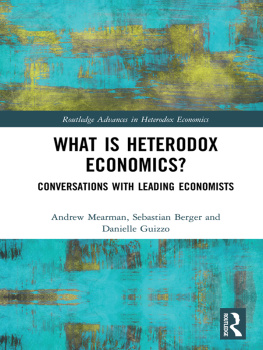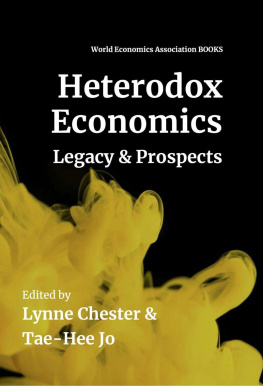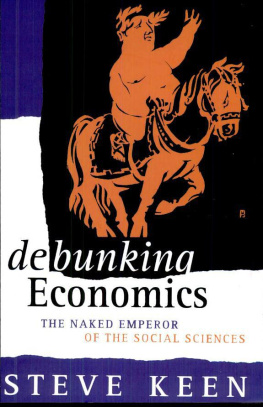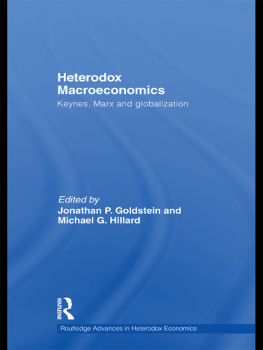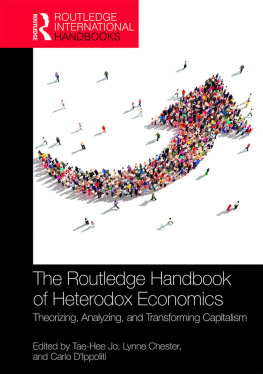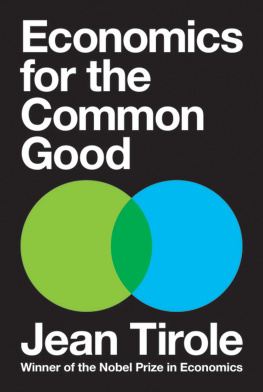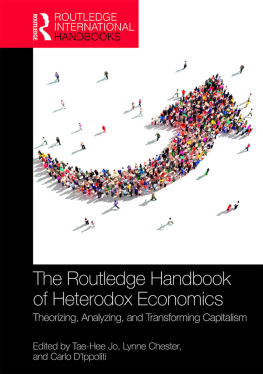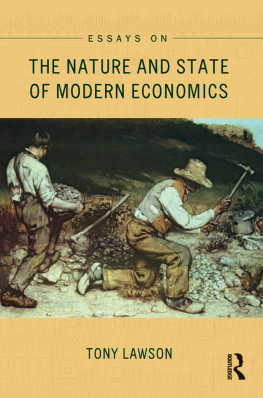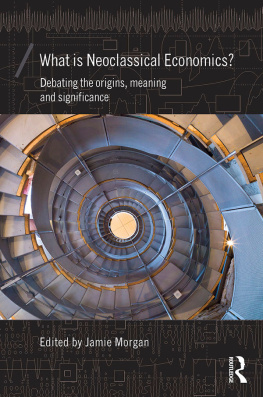Table of Contents
What Is Heterodox Economics?
Since the Global Financial Crisis, economics has been under greater public scrutiny, revealing a crisis in the discipline. This represented a potential turning point on how economics should be thought about and taught. Heterodox economics has played a prominent role in these discussions revolving around new economics thinking and pluralism in economics. Yet, its identity, aspirations, and pedagogy remain underexplored, contested, and somewhat opaque.
This volume brings together 16 interviews with leading economists to understand what heterodox economics is. How and why does an economist become heterodox? In which way do heterodox economists see themselves as different from mainstream economics? The interviews shed light on what problems heterodox economists perceive in the mainstream, elucidate the different contexts under which they operate in higher education, and provide insights on their ontology and methodology. The reader will also find answers to the following questions about the nature and state of heterodox economics: do heterodox economists have particular intellectual journeys, motives, and aspirations? Is this reflected in their teaching practices and strategies to achieve social change? What is the relation between heterodox economics and the humanities and arts?
Appealing to a diverse audience, including philosophers, sociologists, and historians of economic thought, the book will be of great interest to anyone keen to find out more about the internal discussions in the economics discipline.
Andrew Mearman is Associate Professor of Economics at the University of Leeds, UK. He has previously taught at the University of the West of England (UWE Bristol), UK; Wagner College, New York, USA; and the University of Lincoln, UK. He has published extensively on economics education, the philosophy and methodology of economics, and heterodox economics and pluralism.
Sebastian Berger is Senior Lecturer in Economics at the University of the West of England (UWE Bristol), UK. He is a recipient of the Helen Potter Award from the Association for Social Economics and a trustee of the Kapp Foundation for the Humanization and Integration of the Social Sciences.
Danielle Guizzo is Senior Lecturer in Economics at the University of the West of England (UWE Bristol), UK. She has published articles on the history of economic thought, philosophy of economics, and teaching of economics.
Routledge Advances in Heterodox Economics
Series editors:
Mark Setterfield
The New School for Social Research, USA
Peter Kriesler
University of New South Wales, Australia
Over the past two decades, the intellectual agendas of heterodox economists have taken a decidedly pluralist turn. Leading thinkers have begun to move beyond the established paradigms of Austrian, feminist, Institutional-evolutionary, Marxian, Post Keynesian, radical, social, and Sraffian economicsopening up new lines of analysis, criticism, and dialogue among dissenting schools of thought. This cross-fertilization of ideas is creating a new generation of scholarship in which novel combinations of heterodox ideas are being brought to bear on important contemporary and historical problems.
Routledge Advances in Heterodox Economics aims to promote this new scholarship by publishing innovative books in heterodox economic theory, policy, philosophy, intellectual history, institutional history, and pedagogy. Syntheses or critical engagement of two or more heterodox traditions are especially encouraged.
37Microeconomic Theory
A Heterodox Approach
Authored by Frederic S. Lee, Edited by Tae-Hee Jo
38The Economics of Law, Order, and Action
The Logic of Public Goods
Jakub Boydar Winiewski
39Advancing Pluralism in Teaching Economics
International Perspectives on a Textbook Science
Edited by Samuel Decker, Wolfram Elsner and Svenja Flechtner
40What Is Heterodox Economics?
Conversations with Leading Economists
Andrew Mearman, Sebastian Berger and Danielle Guizzo
For more information about this series, please visit www.routledge.com/series/RAHE
First published 2019
by Routledge
2 Park Square, Milton Park, Abingdon, Oxon OX14 4RN
and by Routledge
52 Vanderbilt Avenue, New York, NY 10017
Routledge is an imprint of the Taylor & Francis Group, an informa business
2019 Andrew Mearman, Sebastian Berger and Danielle Guizzo
The right of Andrew Mearman, Sebastian Berger and Danielle Guizzo to be identified as authors of this work has been asserted by them in accordance with sections 77 and 78 of the Copyright, Designs and Patents Act 1988.
All rights reserved. No part of this book may be reprinted or reproduced or utilised in any form or by any electronic, mechanical, or other means, now known or hereafter invented, including photocopying and recording, or in any information storage or retrieval system, without permission in writing from the publishers.
Trademark notice: Product or corporate names may be trademarks or registered trademarks, and are used only for identification and explanation without intent to infringe.
British Library Cataloguing-in-Publication Data
A catalogue record for this book is available from the British Library
Library of Congress Cataloging-in-Publication Data
Names: Mearman, Andrew, 1971- author. | Berger, Sebastian, author. | Guizzo, Danielle, 1989- author.
Title: What is heterodox economics? : conversations with leading economists / Andrew Mearman, Sebastian Berger and Danielle Guizzo.
Description: Abingdon, Oxon ; New York, NY : Routledge, 2019. |
Series: Routledge advances in heterodox economics ; 40 | Includes bibliographical references and index.
Identifiers: LCCN 2018053198 (print) | LCCN 2018055743 (ebook) | ISBN 9781315188737 (Ebook) | ISBN 9781138731950 (hardback : alk. paper)
Subjects: LCSH: Economics. | Schools of economics. | Radical economics. | Evolutionary economics.
Classification: LCC HB75 (ebook) | LCC HB75 .M388 2019 (print) | DDC 330.15dc23
LC record available at https://lccn.loc.gov/2018053198
ISBN: 978-1-138-73195-0 (hbk)
ISBN: 978-1-315-18873-7 (ebk)
Typeset in Bembo Std
by Cenveo Publisher Services
As with all such projects, there are several groups and individuals to thank. We presented early thoughts about the framework for the book at the Association for Heterodox Economics (AHE) 2017 conference and received numerous helpful suggestions there. We presented findings from the book at the AHE 2018 conference and again got excellent feedback. We thank all participants for their comments. We also offer special thanks and encouragement to our colleagues (alphabetically) Andrew Brown, Yannis Dafermos, Jamie Morgan, Esther Pickering, Elke Pirgmaier, and Don Webber. Clearly, there were many others worthy of being interviewed: we could easily construct a second and third volume; alas not yet. Principally, of course, we must thank our interviewees, who gave up their time to meet with us, go through transcripts, and where necessary provide extra information. Their assistance was indispensable. We also thank Routledge for making this project possible, in particular Laura Johnson and Anna Cuthbert.
We dedicate this book to the memory
of Fernando Cardim de Carvalho (19532018).
Contents
The present volume comprises 16 interviews with leading economists undertaken between March 2017 and April 2018. Our intention in doing this is to better understand heterodox economics from the point of view of its leading exponents, especially how one

